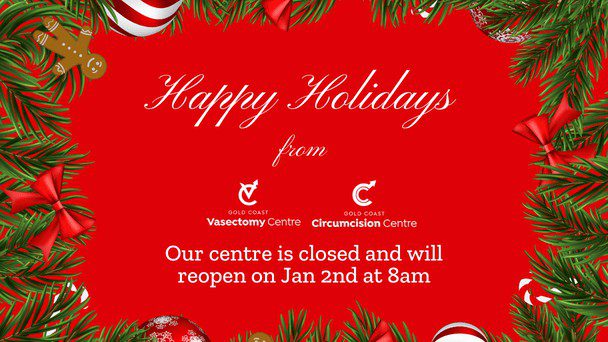
Choosing the right contraceptive method is a significant decision that impacts your long-term health, lifestyle, and family planning goals. Among the various options available, vasectomy stands out as a highly effective and permanent solution for men who are certain they do not want more children. However, it’s essential to carefully weigh this option against other contraceptive methods to determine what’s best for you and your partner. Open communication with your partner is key to ensuring that you both feel confident and comfortable with the decision.
This blog post will help you navigate the decision-making process by comparing vasectomy with other popular contraceptive methods and highlighting the importance of involving your partner in the conversation.
A vasectomy is a minor surgical procedure that involves cutting or sealing the vas deferens, the tubes that carry sperm from the testicles to the urethra. This procedure effectively prevents sperm from mixing with semen, making it impossible to impregnate a partner. Vasectomy is considered a permanent form of contraception, with a success rate of over 99%. It’s a quick procedure that can usually be done in under 30 minutes and has a short recovery time.
It’s important to note that, while a vasectomy is highly effective, it is not easily reversible. That’s why discussing your long-term family planning goals with your partner is so crucial. A vasectomy should only be considered when both partners are certain they do not want more children in the future. Learn more about the procedure on our vasectomy page.
While vasectomy offers many advantages, it’s important to compare it with other contraceptive methods before making a decision. Here’s a breakdown of how vasectomy measures up against other options:
Condoms are a popular, non-invasive contraceptive method that also offers protection against sexually transmitted infections (STIs). However, they are less effective than vasectomy in preventing pregnancy, with a typical-use effectiveness rate of around 85%. Condoms require consistent and correct usage, which can be inconvenient for some couples. Discussing how this method fits into your lifestyle and relationship is vital to ensure both partners are comfortable with the level of protection it offers.
Hormonal contraceptives, such as birth control pills, patches, and injections, are widely used by women. These methods are effective in preventing pregnancy but can have side effects, including mood changes, weight gain, and increased risk of certain health issues. Hormonal methods also require ongoing maintenance, such as daily pills or regular injections, making them less convenient than a one-time procedure like vasectomy. It’s important to consider how the side effects of hormonal birth control may impact your partner’s health and well-being when weighing this option.
IUDs are a long-term contraceptive solution that can be hormonal or non-hormonal. They are highly effective, with success rates above 99%. However, IUDs are inserted into the uterus, which can be uncomfortable or painful for some women. While they are reversible, the insertion and removal process can be invasive. Couples should discuss how comfortable they are with these procedures and whether IUDs align with their long-term family planning goals.
Female sterilisation, such as tubal ligation, is a permanent form of contraception similar to vasectomy. However, it is a more invasive procedure with a longer recovery time and higher cost. Many couples choose vasectomy over female sterilisation due to its simplicity and lower risk. Having an open conversation about the risks and benefits of both options will help you and your partner determine the best course of action.
When deciding between vasectomy and other contraceptive methods, it’s essential to consider your long-term family planning goals, health, and convenience, while also prioritising open communication with your partner. If you and your partner are certain that you do not want more children, vasectomy is a reliable and straightforward option. However, if you prefer a reversible or non-surgical method, you may want to explore other contraceptive options that better suit your needs as a couple.
Ultimately, this decision is one that should be made together, taking into account both partners’ feelings, preferences, and future goals. By approaching the conversation with honesty and openness, you can ensure that the decision aligns with your shared vision for the future.
For personalised advice and to schedule a consultation, please call our clinic at 07 5531 3205. We are here to help you and your partner make an informed decision that supports your health, lifestyle, and family planning needs.
Related Articles:
Please submit an enquiry and we will endeavour to get in contact with you as soon as possible.
Dr Michael Read has thirty years’ experience performing vasectomy and circumcision procedures and an established reputation on the Gold Coast.
Please fill in the online enquiry form to ask a question or book your consultation with Dr Michael Read at Gold Coast Circumcision Centre or Gold Coast Vasectomy Centre.
Monday - Friday
08:00 am to 05:00 pm
Closed Weekends and Public Holidays
© COPYRIGHT 2021. DR MICHAEL READ
